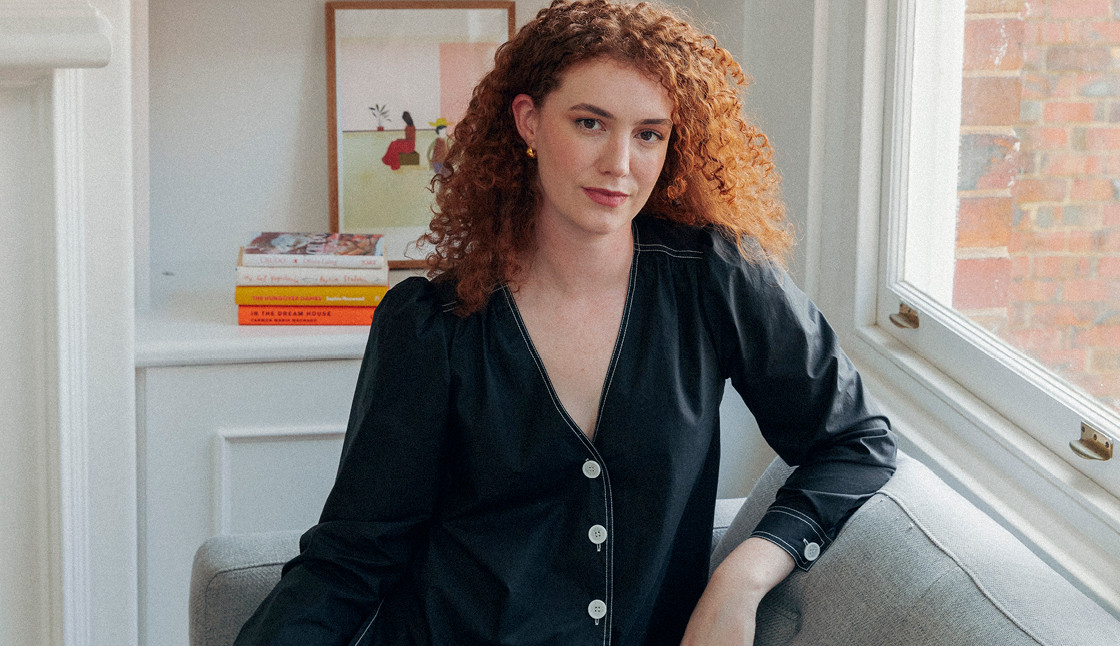
Culture, People // October 2025
Supper Society
How Club Sup is reshaping community, one table at a time.
Share this on LinkedIn, Twitter

It started with a single dinner. One borrowed gallery, one hand-written seating plan, one home-cooked meal. And yet, for Sophie McIntyre, the founder of Club Sup, that first intimate supper marked the beginning of a movement – one built not on food, but on connection.
Founded in 2021, in the uneasy stillness between Melbourne lockdowns, Club Sup was McIntyre’s personal response to a problem that she realised was surprisingly universal: a lack of genuine social connection in adult life.
“I’d moved to Melbourne, started a new job where everyone was 15 years older than me, and realised just how hard it was to find my people,” she says. “Then the pandemic hit, and I suddenly had the time to reflect. I kept thinking – what if there was a way to create a space where people could meet and connect, outside of dating or work?”
So she did just that. With no marketing strategy beyond an Instagram post and an invitation to “Join us,” Sophie hosted her first supper. The rules were simple: bring someone no one else knows, sit next to someone unfamiliar, and pass the potatoes. The dinner sold out within hours.
In the years since, that one-off gathering has grown into a national and now international community. Today, Club Sup hosts curated dining experiences in restaurants across Australia – and most recently, London – alongside a growing schedule of book swaps, Saturday walks and city-specific community events.
At its core, Club Sup is deceptively simple: people, food, conversation. But in an era of curated online lives and algorithm-driven friendships, its analog approach to connection has struck a chord. McIntyre credits the brand’s success to timing, but also to the hunger for intimacy that many didn’t realise they had.
“When I started, people would whisper, ‘Do you think it’s weird I want to come? Like, doesn’t this mean I have no friends?’” she says. “And now, four years later, that stigma is gone. Wanting connection is no longer seen as desperate. It’s just human.”
Much of Club Sup’s magic lies in the environment it creates. There’s no pressure to perform or network. Guests are greeted with a drink, a smile and the simple task of saying hello to one person. “The nerves last five minutes,” Sophie laughs. “And then you realise – no one here is watching you more than you’re watching yourself.”
Each supper is shared-plate style, designed to encourage conversation and generosity. Whether you’re asking a stranger if they’ve had enough potatoes or pouring someone a second glass, the act of eating together lowers social defences. As Sophie puts it, “The table does most of the work for us.”
While the community skews millennial and Gen Z, Club Sup has also created space for midlife connection. Its 40+ series, a Sunday lunch at local institution Neighbourhood Wine, has quickly become a favourite among attendees – and, McIntyre admits, one of her personal highlights.
“There are two types of people at the 40+ events,” she explains. “Those whose kids are older and they suddenly have time again. And those who don’t have kids, but are in a stage of life where they’re asking: Who are my people now? Where do I go to find them?”
For anyone navigating the complexity of modern life – Club Sup offers something deeply rare: meaningful, in-person connection without pretense. In a world increasingly defined by digital communication, Club Sup’s analogue ethos is both refreshing and radical.
Its expansion into London came, like all things Club Sup, from listening. “I kept getting DMs from Aussies who’d moved to London asking if there was anything like us there,” Sophie recalls. “Then Brits started coming to our events in Australia because their Aussie friends had brought them. I realised there was something reciprocal happening.”
Club Sup’s first London dinners were hosted at East London institutions such as The Marksman and Pophams – charming venues willing to say yes. The brand’s next frontier is to build partnerships that help brands tap into real-world community, something McIntyre describes as “creating an offline manifestation of digital connection.”
Club Sup may have begun as a supper club, but its true product is belonging. And in a post-pandemic world, that has never felt more necessary. “People are craving something that feels real,” Sophie says. “Something small, something thoughtful, something honest. It’s not about going viral anymore – it’s about going deeper.” And perhaps that’s Club Sup’s secret. Not about going out. But about going in – into community, into care, into connection.
—
Club Sup - clubsup.com.au
More than an iconic Melbourne landmark, 101 Collins Street is where influential businesses exchange exceptional ideas.